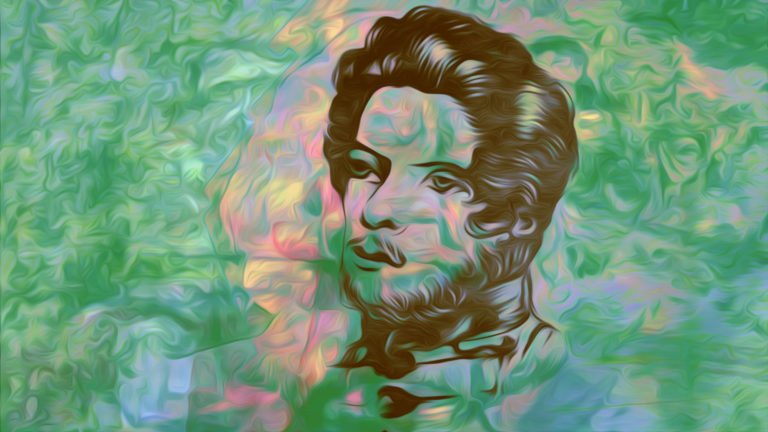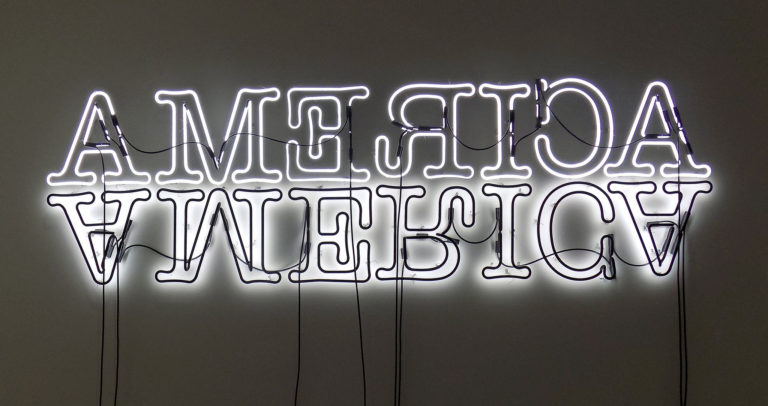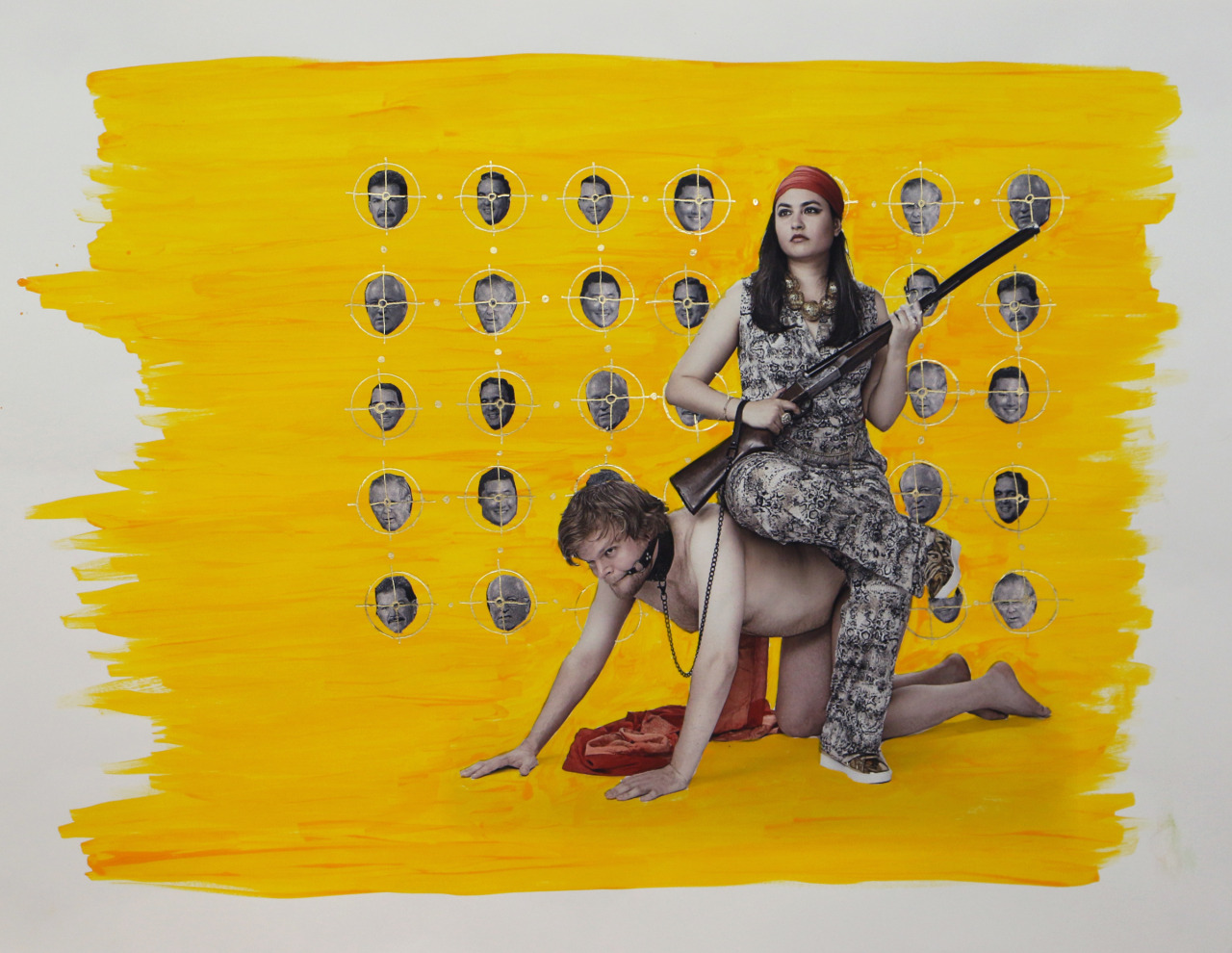Critical analyses of domestic technological culture have emphasized the impact of domestic technologies on intensifying women’s labor and reinforcing its privatization within the home, all the while being marketed as laborsaving devices. Drawing from the ways the marketing of domestic technologies framed the home as a space in need of technological administration, this article offers a Marxist feminist analysis of online surveillance during leisure time, examining how the marketing of technologies for both domestic labor and online leisure helps produce relationships between subjects and technologies that double as vehicles for capital accumulation. The article argues that we should look to the history of domestic technological design to understand the ways online surveillance and data collection are used to produce revenue and impact consumer behavior, given that both domestic technologies and contemporary information technologies work to rationalize non-waged time. The article begins with the Taylorization of the home popularized in 1912, followed by the rise of domestic technologies in the 1950s, in order to demonstrate how the ideological framing of the home as a space in need of rationalization informs the marketing of today’s personalization technologies. The marketing of personalization technologies reproduces the racialized and gendered logic of machine subordination that framed domestic technologies for the home in the 20th century. The article concludes with a discussion of how Marxist feminism is a useful theoretical framework for understanding and developing a political response to online data collection, given that both the domestic sphere and online leisure time are traditionally understood to be outside the workday, and therefore supposedly outside the scope of capitalist workplace relations of surveillance and exploitation.
Keyword: capitalism
Review of Rated Agency: Investee Politics in a Speculative Age by Michel Feher (Zone Books)
Michel Feher’s new book “Rated Agency: Investee Politics in a Speculative Age” offers both critical evaluations and political discussions of the existing socio-economic theories about the dynamics of capitalism in the past half-century and the possible alternative directions current capitalism could take. Feher argues that whether we are a company in search of funding from shareholders, an indebted public authority seeking bondholders, or an instrumentally precarious individual in need of social benefits, we would all be subject to the issue of accreditation and indebtedness, in which being an investee is more appreciated in an age in which investors have become all-powerful.
Vital Forces: Marx and the Tension of Capitalist Affect
This article juxtaposes Marx’s critique of capitalism with recent developments in affect theory. My central argument is that a critique of the tension of capitalist affect is fundamental to a Marxian account of capital: on the one hand, capitalism amplifies the potential affective capacity of bodies through its development and organization of productive forces; on the other, it captures this increase to enrich the bourgeoisie, immiserate the proletariat, and reproduce capitalism. I also sketch the ways that an affective interpretation can provide insight into anti-capitalism resistance and post-capitalist life within Marx’s theoretical and philosophical project. Ultimately, reading Marx’s critique of capitalism for its resonances with Deleuzean-Spinozan affect theory not only generates a newfound apprehension of the affective register of that critique, but also adds to the critical repertoire of affect theory.
Review of Global Entertainment Media: A Critical Introduction by Lee Artz (Blackwell)
Artz gives overwhelming evidence of how the cultural hegemony of individualism and consumerism is promoted everywhere by transnational media corporations (TNMCs), so that current social relations in capitalism are reproduced and reinforced. The reader can get a clear outlook of TNMCs and their impact on the diversity, hybridization, and standardization of global culture and outlooks.
Review of Necroculture by Charles Thorpe (Palgrave Macmillan)
Charles Thorpe’s Necroculture attempts to demonstrate that the variegated experiences of alienation under the technocratic culture of neoliberal capital are experiences tantamount to a culture of death. Thorpe suggests that the root of the necrophilia that defines contemporary capitalist culture is in the valuing of non-living objects over living human beings. In the alienation and replacement of imperfect human labor with automated dead labor and in a highly atomized consumer culture where social participation is mediated by commodity fetishism, the non-living are given priority over the living.
Review of Alien Capital: Asian Racialization and the Logic of Settler Colonial Capitalism by Iyko Day (Duke University Press)
Iyko Day makes a compelling intervention in discussions of race, capital, and settler colonialism. Her book presents a theorization of the abstract economism of Asian racialization by examining how social differentiation functions as a destructive form of abstraction anchored by settler colonial ideologies of romantic anticapitalism. By engaging with capitalism’s abstraction of differentiated gendered and racialized labor in order to create value, Day’s project diverges from scholarship arguing that capitalism profits from labor via the production, rather than the abstraction, of racialized difference (Lowe 1996; Roediger 2008). Her book engages a rich multimedia archive and uses principal historical instances of Asian North American cultural production as theoretical texts to examine key racial policies since the 19th century: Chinese railroad labor in the 1880s, anti-Asian immigration restrictions; internment of Japanese civilians during World War II, and the neoliberalization of immigration policy in the late 1960s.
Neoliberalism, Racial Capitalism, and Liberal Democracy: Challenging an Emergent Critical Analytic
Response to Jodi Melamed, “Proceduralism, Predisposing, Poesis: Forms of Institutionality, In the Making,” published in Lateral 5.1. Aho pointedly argues that studies of institutionality all too often substantiate what she calls neoliberalocentrism, which readily posits neoliberalism as the singular paradigm into narrating a teleological development of history. Instead, she echoes Kim and Schalk to articulate ‘crip-of-color materialism’ as an analytic that thickens understandings about global structures of inequity and fissures within them.
Neoliberal Aesthetics: 250 cm Line Tattooed on 6 Paid People
Eunsong Kim challenges existing literature on Spanish artist Santiago Sierra, articulating Sierra’s neoliberal aesthetics as part of a process of managing the imagination of finance capitalism. By situating Sierra’s performance art as a performance of terror, Kim argues that Sierra does not just collaterally reproduce capitalist power relations, but coldly and calculatedly exploits and violates the bodies of the working poor, particularly people of color, for his own profit and for the viewing pleasure of his wealthy audiences. Kim fiercely critiques the ways Sierra profits from his use of Marxist discourse and appeals to political action. In doing so, Kim challenges scholars and artists to embrace the position of laborers and take up Black Radicalism against artistic instantiations of capitalism.
BOT I
“BOT I” is a radical monologic mash-up of autobiographical material from Pilar’s childhood in a computing family and her passions for and against technology, cut in and through the texts of Samuel Beckett’s “Not I” and Isaac Asimov’s I Robot. This article includes the script of the performance Pilar presented at the Radical Philosophy Association Conference in Eugene, Oregon on November 13, 2010 and images from a 2011 performance. Ruthless in its refusal of all gentility and tact, and insistent in its feminist critique, Pilar’s script reveals the blind spots that capitalist techno-culture reserves for ethics and the body.
Postcool
Francesco Salvini asks what it means to translate the categories of postcolonial thought in the practices of organisation of a subaltern neighbourhood trapped in the hurricane of valorisation and abstraction of urban space. Salvini presents an analysis of what he calls an ‘audio-visual inquiry’ conducted by a collective of political activists organising in the Raval in Barcelona. The laboratory of Postcool sought to find ways to learn about the subaltern histories of the Raval that are made invisible. Salvini discusses the ways in which the collective investigated how these subaltern histories of the Raval inscribe themselves in the urban design of the city in their relevance for organising against gentrification in the context of postcolonial capitalism.
Response to “Postcool”
Sandro Mezzadra responds to “Postcool” by Francesco Salvini, reflecting on the “method” of militant research the use of Chakrabarty’s concepts in Salvini’s understanding of “postcolonial capitalism.”






